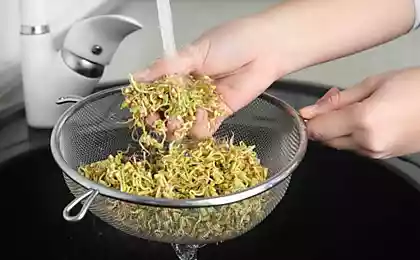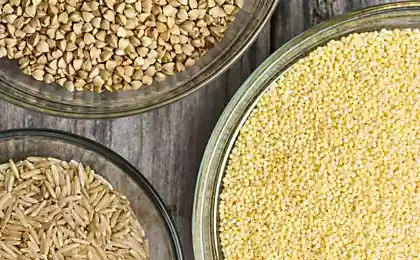225
This Is Why You Shouldn't Wash Meat Before Cooking
You come from the market, unfold a package carefully packed with a butcher, or take the chicken fillet out of the bag, and immediately the thought comes to mind: not rinse the purchased product under running water before cooking? It seems that this hygienic procedure is as necessary as washing hands before lunch. Suddenly, the butcher is unclean, and there are a lot of flies in the market. But washing meat not only does not help get rid of possible bacteria, but also spreads them throughout the kitchen.
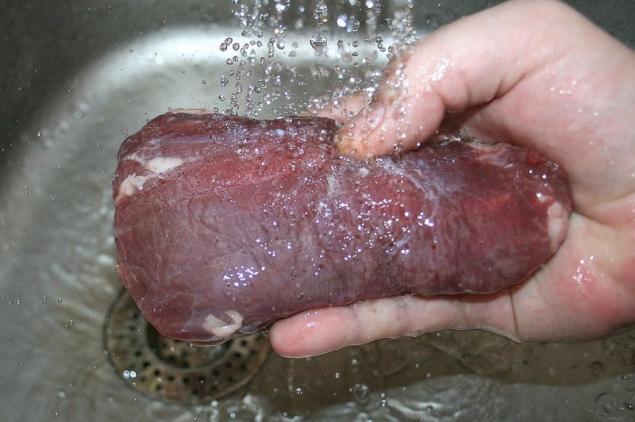
So. should be washed? "Site" It will explain why the meat you have just bought should not be subjected to such a test. No matter how itchy your hands, you shouldn't.
Every housewife knows that all products must be thoroughly washed before cooking. Fruits, vegetables, eggs - all unconditionally in the sink. And what a temptation to do the same with meat brought from the market. It is unclear where it lay, it is unclear who touched it and what flies were sitting on it! But experts in culinary affairs unanimously say that whatever meat you buy, It cannot be washed categorically..
In vain attempts to flush harmful bacteria from meat, you only make things worse. Imagine all these microscopic bacteria, along with water molecules, going straight into your mouth, settling on your skin, around your sink, on other foods and even on your clothes.

Given that you are going to cook meat, not eat raw, there is no point washing it - all bacteria are safe. They die from heat exposure.. What can not be said about the bacteria that settled on kitchen utensils, and so densely that their destruction will require more than one painstaking cleaning. It is these contaminated items of kitchen utensils that can subsequently serve as a source of serious food poisoning.
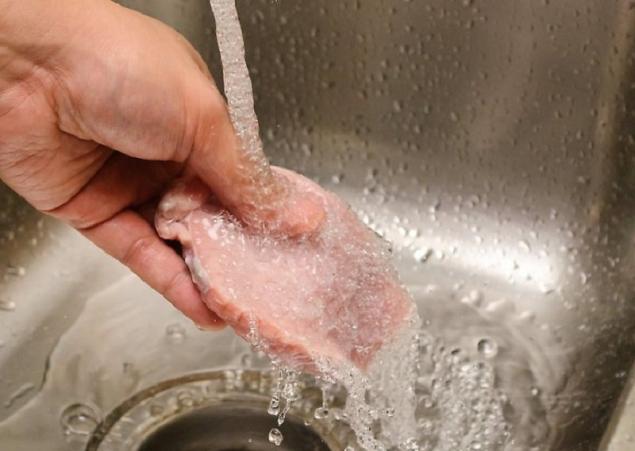
This is especially true for chicken meat, because it most often causes infection with salmonella. During washing chicken meat, water droplets containing harmful bacteria fly up to 1 meter. If you are still in doubt, look at the cooking style of eminent chefs who never wash meat, but always wash their hands after contact with it.

There is another argument that will convince you not to wash meat in the future: a stream of water, especially hot, you violate the molecular composition on the surface of the meat, thereby violating the molecular composition of the meat. flavouring. In other words, such meat does not turn brown, loses its taste and aroma. That is, the meat will simply stew, and until all moisture evaporates, the juicy steak will completely lose all juices.

What does the chief recommend?
Well, if the ill-fated piece of meat still wanted to wash, do it very carefully, without splashing water, and after washing thoroughly wash the sink and all the nearby kitchen utensils. Follow our recommendations and you will not be afraid of any bacteria!
Share this informative article with friends, they may still wash purchased meat before cooking, but in vain!

So. should be washed? "Site" It will explain why the meat you have just bought should not be subjected to such a test. No matter how itchy your hands, you shouldn't.
Every housewife knows that all products must be thoroughly washed before cooking. Fruits, vegetables, eggs - all unconditionally in the sink. And what a temptation to do the same with meat brought from the market. It is unclear where it lay, it is unclear who touched it and what flies were sitting on it! But experts in culinary affairs unanimously say that whatever meat you buy, It cannot be washed categorically..
In vain attempts to flush harmful bacteria from meat, you only make things worse. Imagine all these microscopic bacteria, along with water molecules, going straight into your mouth, settling on your skin, around your sink, on other foods and even on your clothes.

Given that you are going to cook meat, not eat raw, there is no point washing it - all bacteria are safe. They die from heat exposure.. What can not be said about the bacteria that settled on kitchen utensils, and so densely that their destruction will require more than one painstaking cleaning. It is these contaminated items of kitchen utensils that can subsequently serve as a source of serious food poisoning.

This is especially true for chicken meat, because it most often causes infection with salmonella. During washing chicken meat, water droplets containing harmful bacteria fly up to 1 meter. If you are still in doubt, look at the cooking style of eminent chefs who never wash meat, but always wash their hands after contact with it.

There is another argument that will convince you not to wash meat in the future: a stream of water, especially hot, you violate the molecular composition on the surface of the meat, thereby violating the molecular composition of the meat. flavouring. In other words, such meat does not turn brown, loses its taste and aroma. That is, the meat will simply stew, and until all moisture evaporates, the juicy steak will completely lose all juices.

What does the chief recommend?
- Cooking thermometer is a reliable assistant in your kitchen. Once the temperature inside the juicy piece in the pan reaches 55 ° C, rest assured – nothing threatens your health. By the way, for different types of meat, the temperature of heat treatment, at which harmful bacteria die, varies significantly. For example, beef is enough 60 ° C, but the chicken needs to be heated to 75-80 ° C.
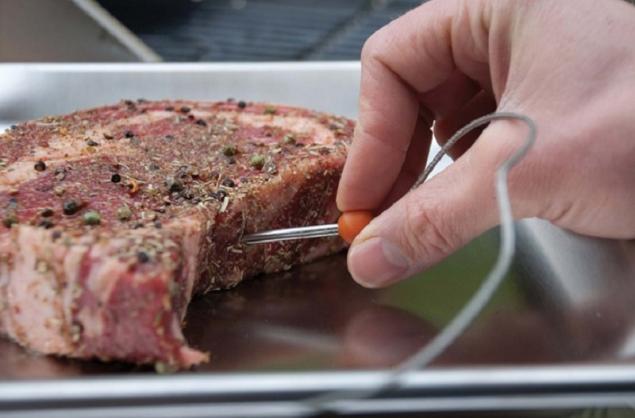
- Instead of meat-washAfter purchase, simply wet its surface with a paper towel and send it to the pan. The towel with which you dried the meat, be sure to throw away, and wash your hands thoroughly with soap under a stream of hot water.
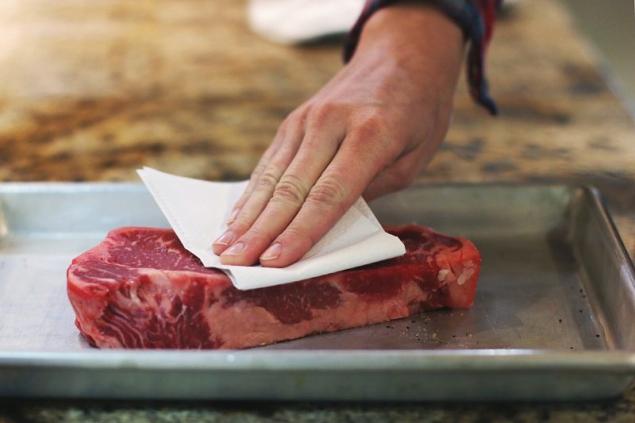
- It is also not recommended to wash meat that is purchased for freezing. Washing not only does not save from bacteria, but also significantly reduces the shelf life of such meat. Dry the meat with the same paper towels, pack and safely send to the freezer for storage.
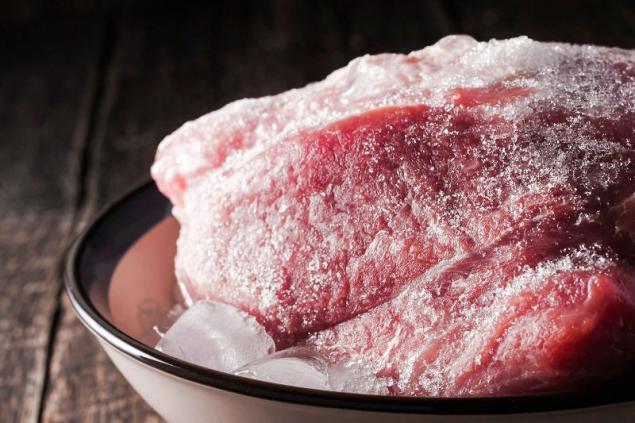
- But most importantly, buy meat only from trusted suppliers. A good piece of meat should not emit any foreign smells, except the aroma of fresh meat. Fat should be white, pork pink, and beef - rich red. Brown shade of meat indicates its staleness and advanced age of the animal. Be sure to touch the meat: put the piece on a flat surface and press your finger - fresh meat will quickly take its original shape, and the piece of not the first freshness will remain gritty.
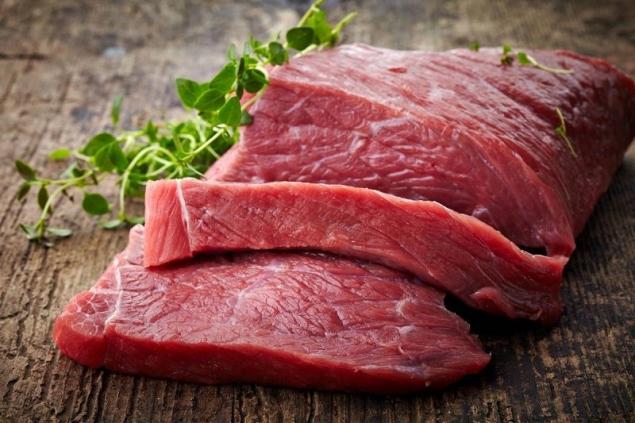
Well, if the ill-fated piece of meat still wanted to wash, do it very carefully, without splashing water, and after washing thoroughly wash the sink and all the nearby kitchen utensils. Follow our recommendations and you will not be afraid of any bacteria!
Share this informative article with friends, they may still wash purchased meat before cooking, but in vain!
How to choose godparents for a child
Almost for nothing! Vitamin E will magically transform your skin.




